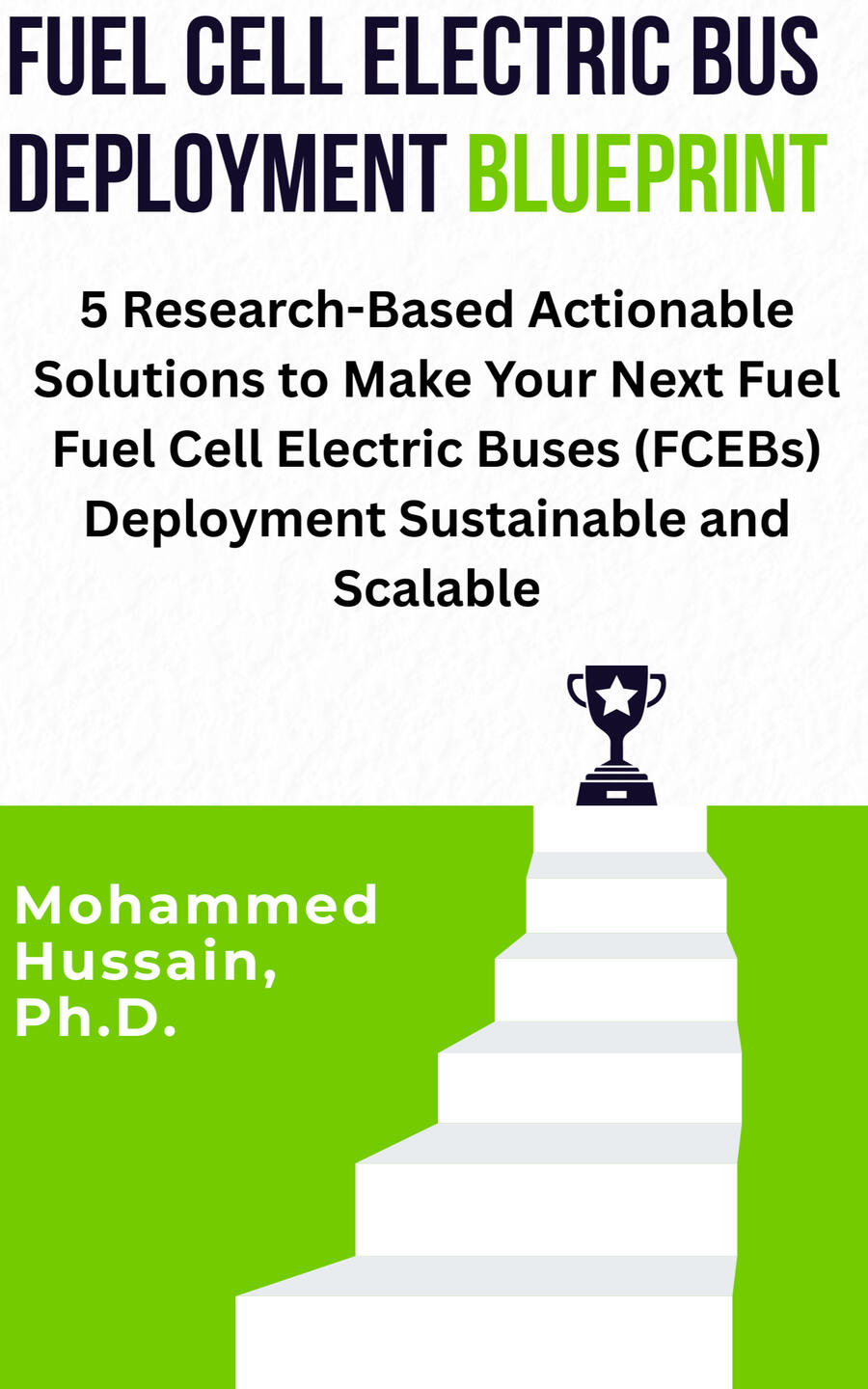Fuel Cell Electric Bus (FCEB) Deployment Blueprint
5 Research-Based Actionable Solutions to Make Your Next Fuel Cell Electric Buses (FCEBs) Deployment
Sustainable and Scalable
(Including lessons learned from early FCEB deployments)
Backed by my 20+ years of experience working at Fuel Cell & Green Energy Lab at University of Waterloo, National Research Council of Canada (NRC), Automotive Fuel Cell Cooperation Corp. (AFCC), and Ballard Power Systems.

Created by Mohammed Hussain, who has...
Been a Senior Applied Scientist at Ballard Power Systems and AFCC.
Been a Consultant to decarbonization projects with City of Surrey & Simon Fraser University and FarmTech Inc. & Ontario Tech University on alternative fuels and technologies.
Got a doctoral degree from University of Waterloo in Fuel Cells.
Want to deploy FCEBs as a reliable and scalable zero-emission solution to decarbonize your fleet?
Here's a sneak peek of everything you're going to learn inside in the form of "mistakes" often transit agencies make...
Day #1: Misestimating total cost of ownership (TCO) (and why you need a dynamic TCO model even if you have included all the anticipated costs).Day #2: Underestimating hydrogen purity and its sourcing strategy (and how to ensure hydrogen purity and its sourcing strategy right).Day #3: Deploying FCEBs on wrong routes (and why it is important to deploy FCEBs where it makes more economic and environmental sense).Day #4: Undermining staff training and development of safety protocols (and why adequate staff training and safety protocols are core deployment steps for successful FCEB programs).Day #5: Running FCEBs with no real-time monitoring and optimization of fleet operations (and why transit agencies need to consider real-time monitoring and fleet optimization as core investment rather than an afterthought).
Awesome! The first lesson of Fuel Cell Electric Bus Deployment Blueprint is on its way to your inbox.
Within the next minute or two, you're going to get an email from me (Mohammed Hussain).This email contains information on what to expect from our 5-day educational email course titled Fuel Cell Electric Bus Deployment Blueprint, so be sure to check it out!But if you have any questions, don't hesitate to hit reply and let me know—I'll be happy to help! :-)Now go and check your inbox!
P.S. If you don't find the email in your inbox in the next couple of minutes, please check your spam folder...Chances are it ended up there.(Since I'm relatively new to sending emails to my list, sometimes the "email algorithms" think I'm a robot! 🤷🏻)